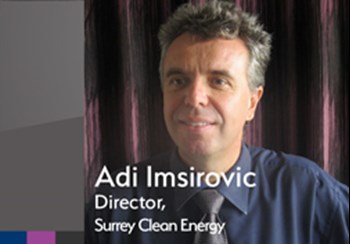OPEC is sometimes called an oil cartel because it restricts output, by means of individual country quotas, to support the price of oil over and above the marginal cost of production.
However, OPEC’s role has been far more important than just supporting oil prices. The organisation was instrumental in producing countries taking control of their resources from the international oligopoly of oil majors, historically known as the ‘Seven Sisters’. This was a massive achievement for the member countries and something of which OPEC should be proud.
This positive role of the organisation should be emphasised far more, and it should also be expanded.
The challenge of climate change for oil-producing countries is immense. OPEC could play a pivotal role in helping its members steer away from use of fossil fuels for combustion and diversifying their economies towards other sectors and cleaner sources of energy that are often abundant in many petrostates. In other words, OPEC should be transformed into an organisation primarily focused on helping its members avoid the pitfalls of the inevitable energy transition.
A special, 2019 edition of the OPEC Bulletin dedicated to the climate change challenge stated that: “Climate change is an undeniable issue affecting each and every one of us on this planet. Indeed, it is one of the greatest challenges facing mankind both today and in the future… [and is resulting in] extreme weather patterns and other disastrous events, which are already affecting many vulnerable communities worldwide”. At the time, this might as well have been written by a climate activist.
The reality is somewhat different. At COP28 in the UAE in December 2023, OPEC Secretary General Haitham al-Ghais urged OPEC members to reject “fossil-fuel targeting”, arguing any text should be rejected unless the focus is on emissions rather than fossil fuels. Saudi Arabia was also considered one of the main opponents to language that vilified fossil fuels and ultimately managed to work out a solution that softened the tone. So, what is behind this difference between the words and deeds?
It appears the Saudi strategy is to support oil prices to be as high as possible, for as long as possible, delaying any change while using the proceeds of high oil revenues to diversify its economy as quickly as possible. But this strategy is unlikely to work for a number of other OPEC countries, such as Nigeria, Venezuela, Angola, Congo-Brazzaville, Gabon or Algeria. These countries are in the highest tier of vulnerability when it comes to climate change, according to thinktank Carbon Tracker.
OPEC could be a vehicle to help the oil producers utilise their vast resources towards making the transition work for them.
Chance for a new chapter?
OPEC already has in place many of the instruments needed for such a role. Officially, its Secretariat has a research division within the Environmental Matters Department that “monitors, analyses, reports and advises on developments pertaining to the international debate on energy policies, climate change and sustainable development and contributes to the close coordination of member country positions on these matters”.
In reality, its only function seems to be political, making sure any measures agreed at COPs and other high-level meetings do not adversely impact member countries: “The OPEC Secretariat expresses its willingness and preparedness to collaborate with the UNFCCC Secretariat and other stakeholders supportive of the UNFCCC process on issues related to addressing the social and economic consequences and impacts of climate response measures,” it says.
The narrative of the OPEC Secretariat is one of energy security, fighting energy poverty, and a fair and just transition. But the only solutions offered are those that favour the status quo and show little sign of wider adoption: CCUS and blue hydrogen.
In the Secretariat’s ‘Input to the third meeting of the Technical Dialogue of the first Global Stocktake’ in 2023, there is no mention of any of the key policies oil producers desperately need to avoid the adverse impacts of the energy transition. There is no mention of methane emissions, reducing carbon intensity or subsidies, and renewables are mentioned only once—in a negative context of displacing oil and gas and impacting producer countries’ income.
Going green
But there is so much more the OPEC Secretariat could and should do for its member countries. It has excellent staff and resources, and it is well positioned to engage in advising its members on improved sustainability and economic stability. Rather than individually engaging in sustainable initiatives, it would be far better to see the whole of OPEC participating. Such examples are the Oil & Gas Climate Initiative (OGCI), in which Saudi Aramco CEO’s is directly involved, the International Petroleum Industry Environmental Conservation Association, which Adnoc and Aramco take part in, Zero Routine Flaring by 2030, which counts Aramco as a member, and others.
Crucially, OPEC could openly recognise that, unless a magic bullet is found for emissions, demand for combusted oil has to fall significantly if we are to prevent climate disasters. This is no different from the tobacco industry admitting that smoking causes cancer. For now, we have only a feeble COP28 agreement to “transition away from fossil fuels in energy systems” with no deadlines.
Secondly, in conjunction with international organisations such as the IMF and the World Bank, OPEC could create an advisory body within its Secretariat to help oil-producing countries manage the risks of the energy transition. The same body should be linked to a fund, sponsored by the wealthier producing as well as consuming countries, facilitating the transition away from oil.
The funds should be available to member countries only when their governments meet the necessary criteria, ensuring a high probability of success. The countries should agree to end fossil fuel subsidies (coupled with targeted cash support for those in need), create properly managed sovereign wealth funds, reform their tax codes and plan for broader economic diversification. Once approved, such funds should be made available the energy and other sectors of the member-country economies.
In the energy sector, priority should be given to investment in transport of previously flared and vented methane into productive uses, wide deployment of renewables, including in oil and gas operations, and—whenever possible—deploying CCS technologies. Further funds should be put in productive use in the private sector of the economy, supporting employment and skill development.
In other words, OPEC could be promoting what its wealthy members such as Saudi Arabia and the UAE are already doing—working hard on moving their economies away from dependence on fossil fuels. Rather than being an obstacle in energy transition, the organisation could be a part of the solution.
In doing so, OPEC could be a force for good, with a legacy of not only wrestling the ownership of its own resources from the neocolonial power of the oil majors, but also in helping its members overcome the hardships of the inevitable energy transition.









Comments